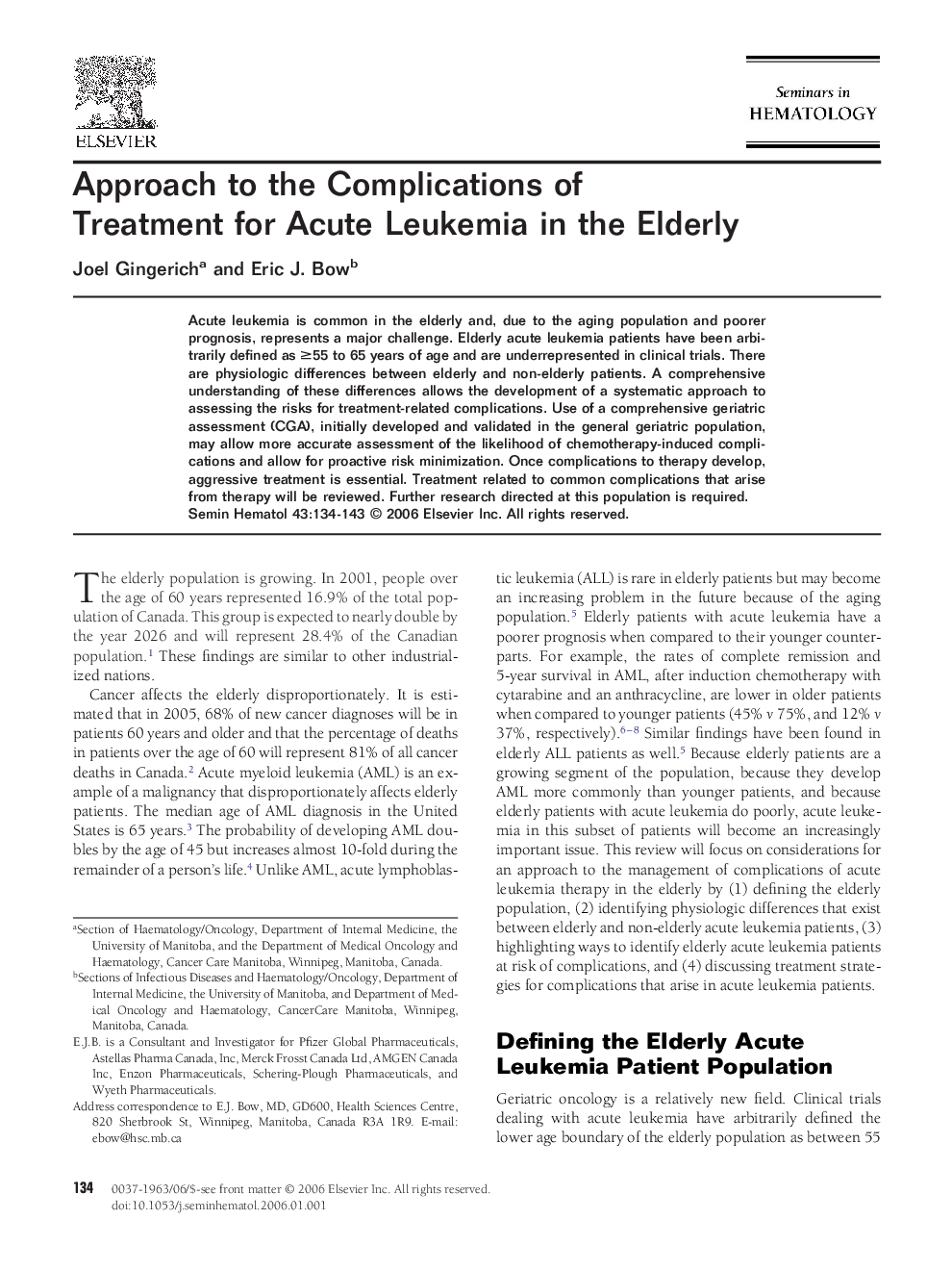| Article ID | Journal | Published Year | Pages | File Type |
|---|---|---|---|---|
| 3334145 | Seminars in Hematology | 2006 | 10 Pages |
Acute leukemia is common in the elderly and, due to the aging population and poorer prognosis, represents a major challenge. Elderly acute leukemia patients have been arbitrarily defined as ≥55 to 65 years of age and are underrepresented in clinical trials. There are physiologic differences between elderly and non-elderly patients. A comprehensive understanding of these differences allows the development of a systematic approach to assessing the risks for treatment-related complications. Use of a comprehensive geriatric assessment (CGA), initially developed and validated in the general geriatric population, may allow more accurate assessment of the likelihood of chemotherapy-induced complications and allow for proactive risk minimization. Once complications to therapy develop, aggressive treatment is essential. Treatment related to common complications that arise from therapy will be reviewed. Further research directed at this population is required.
